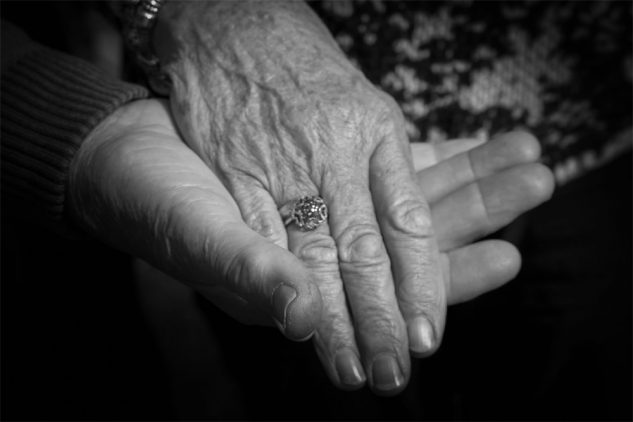How to Become a Legal Guardian for an Elderly Individual
Requesting for the designation of a legal guardian could be an option when your elderly loved one becomes debilitated and no longer can make important decisions by themselves.
When your elderly loved one becomes debilitated, it might become required to have a legal guardian designated to assist them in managing their matters. Despite that, the process of getting a legal guardian designated for an adult can be complex.
Despite this, it might be the only option, especially if your loved one did not put an estate plan in place containing documents like a power of attorney prior to becoming debilitated.
What Is Legal Guardianship?
Guardianship, also called conservatorship, gives the designated guardian the power to make vital decisions for the individual (called the ward) over who they have been appointed.
Legal guardians are court designated, and their responsibilities and authority are subject on the specifics detailed in the court order designating them. Guardianship may be provided for decisions concerning healthcare, financial decisions, or one as well as the other.
The court will designate a legal guardian for an adult when that adult is debilitated to the level that they are unable to make critical decisions by themselves and no other options to guardianship are in place, like a living trust for financial issues or the healthcare power of attorney for making medical decisions.
How to Acquire a Legal Guardian of an Adult
Prior to applying to have a guardian designated for your elderly loved one, verify with the laws of the state that they live in since the process for applying for the designation of a legal guardian differs from state to state.
The process is going to likely include the following steps:
- Request or application to the court, typically the probate court, for the designation of a guardian
- Notification sent to the elderly individual and their family member, informing them that an application has been submitted
- Hearing to establish if the elderly individual is unable to make critical decisions on their own, and also to establish if the individual applying to be designated guardian is fitting for the role
Subject to state rules and regulations, more steps might be involved in the process, like an investigation to establish whether legal guardianship is suitable. In addition, state rules govern who may apply for a guardian to be designated.
The process can become more complex if the elderly individual or a family member or friend raises objection to the application. The court is going to need to hear evidence from each side to establish if a guardian needs to be designated and if the individual seeking designation as a guardian is the proper individual to take on that role.
And since guardianship or conservatorship strips some or all of the legal rights of the ward, courts typically view the designation of a legal guardian as a last resort, so when an alternative is available—like a properly carried out power of attorney—the court will likely not designate a guardian.
Qualifications of a Legal Guardian
The individual that might be designated a legal guardian or conservator is also regulated by state laws, and, once more, each state will have their own requirements. A lot of states require guardians to be on the threshold of adulthood, and a lot will disqualify an applicant when they have a criminal record. And, obviously, a legal guardian must not be debilitated themselves, to the degree that they cannot undertake the responsibilities of guardianship.
Responsibilities of a Guardian for the Elderly
A legal guardian’s responsibilities differ subject to the authority granted by the court in designating the guardian. For instance, the court may designate a guardian solely to administer the elderly individual’s financial issues or designate a guardian to look after the elderly individual’s decisions concerning healthcare.
General responsibilities of a legal guardian for an elderly individual can comprise of:
- Establishing where the elderly individual will reside
- Making decisions concerning the individual’s healthcare
- Carrying out a financial budget to take care of day-to-day expenses
- The arrangement for in-home care and/or meal delivery services
The guardian’s responsibilities might be additionally limited by the court order making the designation, so the actual responsibilities of any guardianship will differ. For instance, the guardian might have to acquire court approval when they believe their ward needs to be moved to an assisted living facility. It’s important to understand what the court order designating the guardian allows and what it regulates.
The process of getting a guardian designated for an elderly loved one can be equally challenging and costly, especially when the elderly individual or their family members object to such a designation.
Because of the complexities that may come up, it’s usually suggested to consult an attorney knowledgeable in guardianship matters when you feel a guardian needs to be designated for your elderly loved one.
Source:
-
Wong, B. (2021, January 27). Appointing a legal guardian for the elderly. Retrieved February 03, 2021, from https://www.legalzoom.com/articles/appointing-a-legal-guardian-for-the-elderly
Arizona Family Law
Naming guardians in your will can be part of your estate plan. You may think you’re too young or don’t have enough money to justify the expense, but if you have children, you have priceless assets. There are many considerations when naming guardians for your kids. However, the process doesn’t have to be expensive or complicated.
There’s nothing better than the peace of mind you will have knowing you’ve protected your family at a time when they need it most. Let us help. Schedule a consultation or contact Ogborne Law, PLC of Arizona today.
Engaging with an attorney to protect your family is never an easy step. Whether you need to protect your family from the unthinkable or restructure your family through collaborative divorce, we’re here to help. When you’re ready to schedule a consultation with Michelle Ogborne, please visit the scheduling page to get started.







